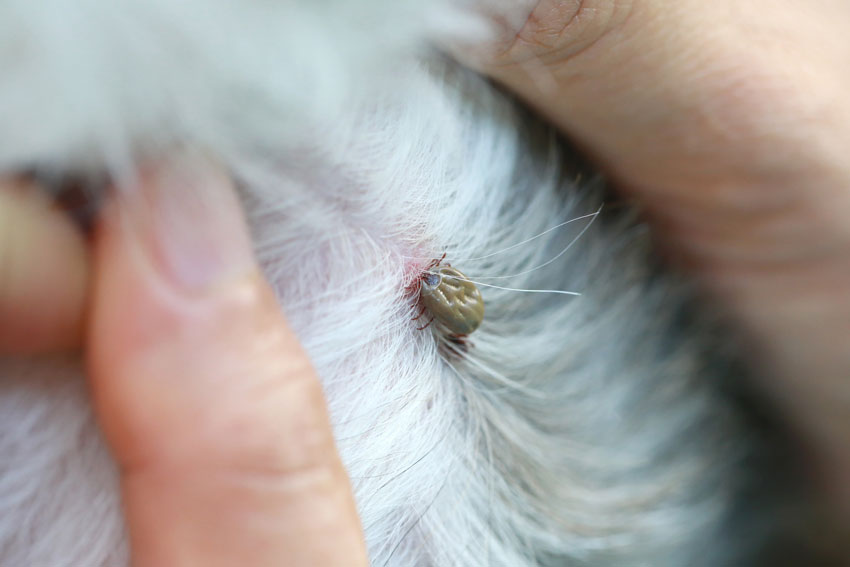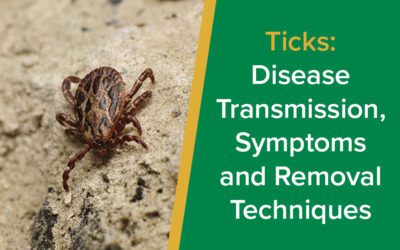Pet parasites like ticks are affecting dogs and cats in many parts of the world. They climb onto plants, especially in areas of long grass, pasture or mixed forest and wait for a suitable animal to walk past, allowing them to cling onto the coat. Areas with high numbers of wild animals such as deer, rabbits and hedgehogs are more likely to be infested with ticks.
What should we know about ticks?
Ticks have 8 legs and specialised mouthparts which allow them to attach to the host and feed on their blood, remaining in place for several days. The longer the tick remains attached, the larger their body becomes as it gradually fills up with blood. After taking a full meal, the female tick then drops off the host animal and will find a suitable place in the environment to lay her eggs, which can number in the thousands.
The site of these pet parasites bite can be painful and may become infected, especially if the tick is scratched or pulled off, leaving the headpiece behind in the skin. Ticks also act as important vectors for transmitting more serious illnesses, such as Lyme disease. Lyme disease may affect both humans and animals, and if left untreated, may have serious consequences, including joint, muscle, heart and nervous system disorders.
How to remove them?
Any pet with access to an environment suitable for tick should be checked regularly, paying particular attention to the head, ears, legs and feet. If a tick is found, it should be removed with a special tick hook and untwisted rather than pulled off. It is not recommended to use tweezers to remove ticks as blood can inadvertently be squeezed back into your pet, resulting in the spread of disease. If you are in any doubt whether the entire tick has been removed, it is best to contact Parkside for advice.
Can we prevent ticks on dogs and cats?
Unfortunately, even with regular checks, it is still possible to miss some ticks and so the use of anti-parasite treatments to prevent or kill ticks is the best method of control. At Parkside Vets, we supply the most effective prescription products to keep your pet tick-free. Your vet will advise the best treatment for your pets and their lifestyle.
*Note
Watch out! Some tick treatments for dogs contain ingredients which are toxic to cats, so read instructions carefully – especially in a multi-pet household.



